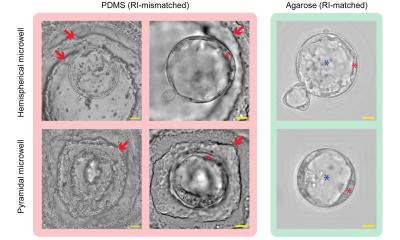A new paradigm in early arthritis patients - proteomic biomarkers
Early arthritis is characterized by autoreactivity (reactivity against self-antigens) of T-B lymphocytes and by the synthesis of autoantibodies crucial for diagnosis (biomarkers). Detection of panels of autoantibodies increases the sensitivity and specificity for the diagnosis of arthritis. The variability in the performance of autoantibody assays may impact the predictive value. Confirmation of sensitivities and positive predictive values in early arthritis should be sought.

President of Romanian Society of Laboratory Medicine
A great need exists to classify accurately and stratify patients with recent-onset arthritis to guide therapeutic decisions. Certain single-parameter diagnostic tests, even when highly specific, may contribute only marginally in distinguishing RA from non-RA patients in early arthritis clinics.
One promising approach is proteomic profiling of autoantibody responses in serum samples and sinovial fluid. Antigen microarray technology provides a simple and cost-effective tool to address these issues, and may help establish evidence-based guidelines for autoantibody testing in early arthritis patients. Autoantibodies reactivities directed against rheumatoid factor, keratin, perinuclear factor, Sa, citrulline-substituted filaggrin peptides, deiminated fibrinogen peptides, calpastatin and alpha-enolase (predictive value for erosive joint disease) have been investigated for their occurrence in early arthritis. The potential of additional markers, such as hnRNP2/RA33, anti-BiP, anti-GPI and the recently described ACAST (antibodies to the c-terminal amino acids of calpastatin) has not been fully explored.
Studies are underway to determine if multiparameter assays provide improved diagnostic and prognostic value. Proteomics is the study of structural and functional endowment of cells, tissues or organs. Proteomic techniques are developed and applied for autoantibody profiling. Proteomic technologies represent a powerful approach to perform multiplex autoantibody profiling. These techniques will have important applications in early arthritis. Proteomic approach can illuminate various facets of early arthritis in near future. Proteomic screening for discovery of novel biomarkers will enable development of high-quality multiparametric assays with superior performance characteristics to guide diagnosis and management of patients with arthritis. Proteomic technologies hold the potential to revolutionize clinical care by providing tools for the discovery of biomarkers for diagnosis, prediction of disease course guiding therapeutic selection, and monitoring response to therapy. Multiple proteomic technologies provide the potential to identify biomarkers with utility for personalized medicine. However these predictors need to be validated in independent patient cohorts.
The development and use of such proteomic biomarkers for diagnosis, assessing prognosis and guiding therapy will revolutionize the care for arthritis. Nevertheless, tremendous work remains to develop, refine, validate and apply proteomic technologies to identify biomarkers in arthritis. With the employment of proteomic technologies, rheumatologists are likely to succeed in discovering an increasing panel of potential early arthritis markers with a greater degree of sensibility.
11.04.2012





